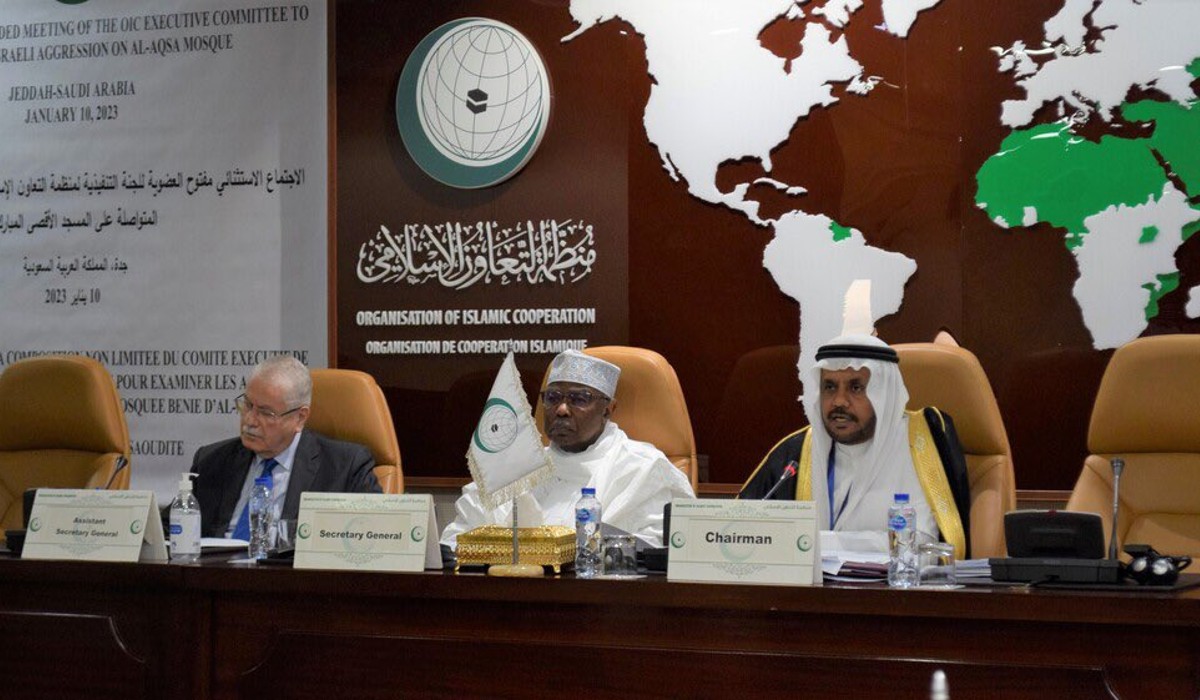The Executive Committee of the Organization of Islamic Cooperation (OIC) said on Wednesday that the Taliban’s decision to close schools and universities for girls and ban women from working for NGOs was in violation of the “purposes of Islamic law”.
The OIC also stated it is “gravely concerned about the worsening humanitarian and human rights situation in Afghanistan.”
In a Communiqué issued by the committee after an extraordinary meeting in Jeddah to discuss the situation in Afghanistan, they noted the “deteriorating humanitarian, social, economic, and human rights conditions in Afghanistan.”
The members emphasized the importance of investing in human development but stressed the “significant role of women in social and economic development and peace and security-building in Afghanistan.”
They stated that the right of women and girls to access all levels of education, including university level, “is a fundamental right in keeping with the teachings of the noble Islamic shariah”.
The Communiqué pointed out that the OIC expects Member States to respect human rights, including the rights of women and children, and stated the organization is “gravely concerned about the worsening humanitarian and human rights situation in Afghanistan.”

While reaffirming the OIC’s solidarity with the people of Afghanistan, and its commitment to Afghanistan, the committee called for a delegation of scholars to visit the country and “engage with the highest officials in Afghanistan”.
They emphasized that education is a fundamental human right that all individuals must enjoy on the basis of equal opportunity and in a non-discriminatory manner, and expressed “its disappointment over the suspension of female education in Afghanistan and the decision ordering all national and international non-governmental organizations (NGOs) to suspend female employees until further notice”.
The committee also urged the Taliban to adhere to the principles and purposes of the Charter of the United Nations and the OIC Charter and to abide by its obligations under international treaties and agreements, including their obligations under international human rights covenants, particularly regarding the rights of women, children, youth, the elderly and people with special needs.
The Taliban were called on to reopen schools and universities for girls. The Communiqué also noted that the organization “underscores the need to protect fundamental rights, including the right to life, security, dignity and the right to education for all Afghan women and girls in accordance with Islamic values and universal human rights standards.”
In addition the Taliban was urged to allow women and girls to exercise their rights and contribute to the social and economic development of society in accordance with the rights and responsibilities as guaranteed to them by Islam and international human rights law.
The committee meanwhile encouraged NGOs to continue humanitarian and relief operations “despite practical difficulties on the ground”. They also suggested that an OIC delegation be dispatched to Kabul to meet with Taliban authorities so they could assess the needs for technical and development assistance, specifically for small businesses.
The Communiqué also called “upon the Secretary-General to follow up and assess the situation in Afghanistan, and take any necessary measures in coordination with the members of the Executive Committee, and submit a report thereon to the next session of the Council of Foreign Ministers.”





